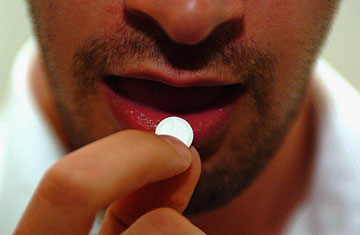
Doctors at the annual meeting of the American College of Cardiology in Atlanta on Sunday got some surprising news on their first day of sessions. Researchers presented three studies revealing that some of the most widely prescribed medications to reduce the risk of heart disease in Type 2 diabetes patients appeared not to provide much benefit at all.
People with diabetes are twice as likely as nondiabetics to suffer a heart attack — most diabetes patients die of heart disease — and for years, physicians have used aggressive drug treatments to lower that risk. To that end, the goal has commonly been to lower blood sugar or control blood-sugar spikes after eating, lower triglycerides and reduce blood pressure in diabetes patients to levels closer to those of healthy, nondiabetic individuals. By using medication to treat these factors, which are linked to a higher risk of heart attack and stroke in other patients, doctors assumed they would also be reducing the risk in people with diabetes.
Now, in the aftermath of reports concluding that these targets do not cut the risk of heart disease in diabetes patients, and in some cases may even do harm, researchers are struggling to make sense of the seemingly counterintuitive data, and physicians are trying to figure out how to incorporate the findings into their practice.
Already, researchers anticipate that more careful analyses of the trial data over the coming months and years may lead to more nuanced conclusions; it may turn out, for instance, that certain subgroups of patients like younger, newly diagnosed diabetics actually benefit from the medications, even while the larger population of diabetes patients do not.
The data come from the Action to Control Cardiovascular Risk in Diabetes (ACCORD) trial, a three-part federal study launched a decade ago to investigate whether the aggressive lowering of those key risk factors — blood sugar, cholesterol and blood pressure — would reduce heart risks in diabetes and prediabetes patients. Two years ago, the blood-sugar arm of the study was terminated, when people who drastically reduced glucose levels ended up having a higher overall mortality rate than those not receiving such intensive therapy.
